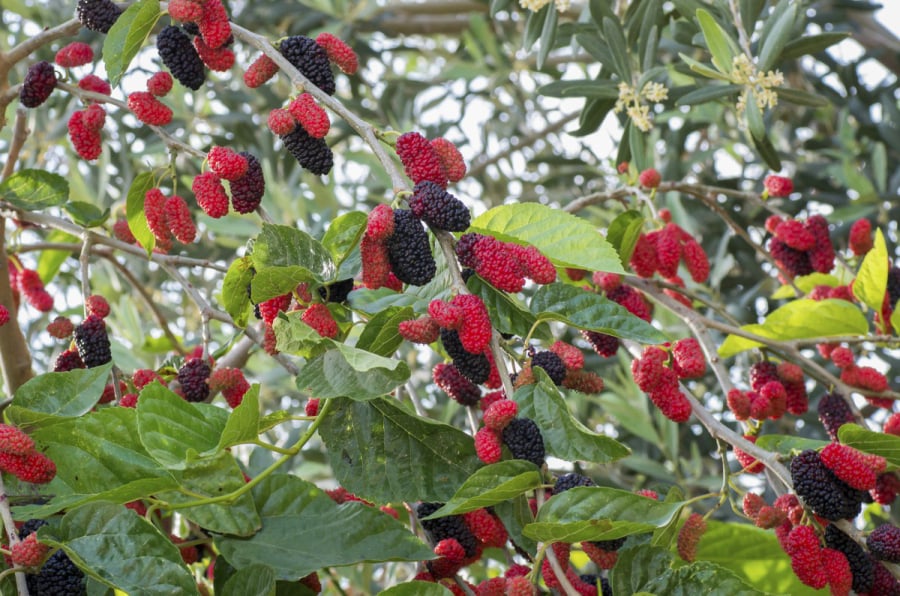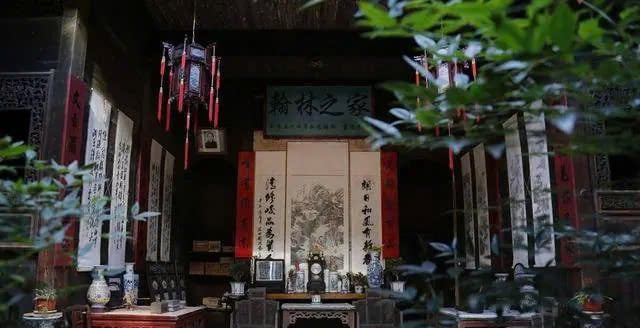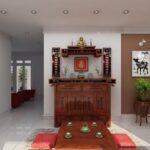In Asian culture, particularly according to traditional feng shui beliefs, the arrangement of plants and objects in a home goes beyond aesthetics. It is believed to directly impact the energy, health, and well-being of the inhabitants. Passed down through generations is the advice, “Avoid planting these three plants in your garden and displaying these three items in your home, as they can inadvertently create negative energy and bring about misfortune.”
Why is it considered inauspicious to plant certain trees in the garden?
The garden is where sunlight, fresh air, and positive energy enter the home. Choosing the right plants can invite prosperity and good fortune. However, one must be cautious as some plants may carry unfavorable meanings or negatively influence the feng shui of the space.
1. Mulberry Tree – A Symbol of Mourning
In the Chinese language, the word for “mulberry” sounds similar to the word for “funeral.” As such, it is believed that planting mulberry trees in the garden can bring about bad luck and negatively affect the health, mental well-being, and financial prosperity of the household. Despite the tree’s medicinal properties, it is considered spiritually inauspicious to have it too close to one’s living space.

2. Pear Tree – Evoking Separation and Discord
The word for “pear” in Chinese sounds similar to the word for “depart.” Thus, it is believed that planting pear trees in the garden can lead to strained relationships within the family, marital discord, and disharmony among children. To preserve peace and unity, many choose to avoid planting pear trees near their homes.
3. Allergy-Inducing Plants – A Health Hazard
Plants like willow and poplar trees, as well as flowers with abundant pollen such as wild chrysanthemums and sunflowers, can trigger allergies, especially in children and individuals with sensitive dispositions. Apart from the feng shui perspective, it is also scientifically advisable to opt for plants that are safe and friendly to the health of your family.
Additionally, feng shui practitioners recommend avoiding trees with large canopies or heights that exceed the roof of the house. These trees can cast a shadow over the home, blocking sunlight and positive energy. During storms, large trees may also pose a danger of falling and causing damage to property and life.
Three Items to Avoid Displaying in Your Home for Peace and Prosperity
The interior space, especially the living room—the heart of the home where guests are entertained and family gatherings take place—requires careful arrangement to maintain positive energy. The following three items are best avoided when decorating your home:
1. Sharp Weapons – Embodying Negative Energy
While they may serve as decorative pieces, swords, daggers, and other sharp objects are believed to carry strong negative energy. Displaying them indoors, especially in the living room, can create a psychologically oppressive atmosphere and weigh down the energy of the space. Many feng shui experts believe that the negative energy emanating from these objects can diminish good fortune and invite instability into the family.
Additionally, the risk of accidents or injuries from falling or mishandling these heavy and sharp objects is a significant reason to avoid displaying them in living spaces.
2. Ancestral Portraits – Reserved for Quiet Reverence
In Asian culture, ancestor worship is a way of showing respect and devotion. However, ancestral portraits are best placed in a quiet and serene space like a dedicated altar room or a separate area, rather than in the bustling living room filled with diverse energies. This demonstrates respect and helps maintain a stable energy field within the home.

3. Melancholy Art – Impacting Mood and Emotion
Our moods and emotions are greatly influenced by our surroundings. Displaying artwork with dark and gloomy color palettes or themes of loneliness and sorrow can cast a heavy and negative atmosphere in the home, especially in the living room, which should be a vibrant and welcoming space.
Feng shui experts recommend opting for bright landscape paintings, happy family portraits, or symbols of wealth and prosperity, such as koi fish, lotuses, and bamboo, to attract good fortune and create a pleasant environment for both hosts and guests.
The wisdom passed down by our ancestors is not only a result of their life experiences but also reflects a refined understanding of creating harmonious living spaces in tune with nature and spirituality. While one need not adhere strictly to these beliefs, carefully considering the choice of plants and decorative items can contribute to the well-being, prosperity, and peace of the household.
The Things You Should Never Place on an Ancestral Altar
The ancestral altar is a sacred spiritual corner in the home, a space for offering gratitude and respect to one’s ancestors. According to traditional feng shui, the placement of objects on the altar is of utmost importance, as even a slight misstep can disrupt the harmony of the home and impact family dynamics and fortune.





































